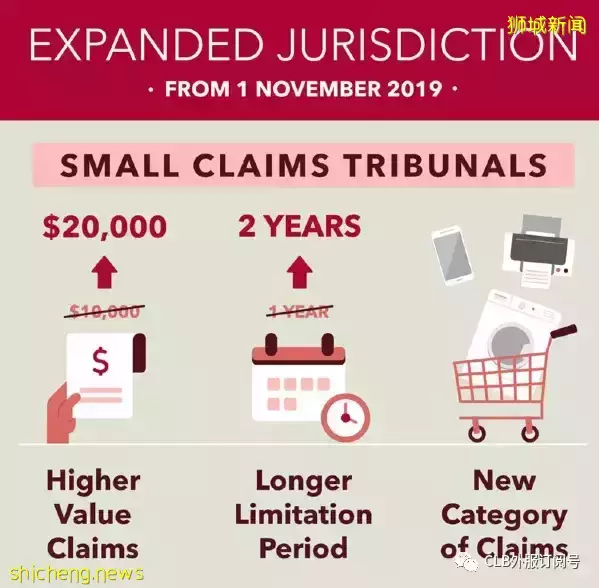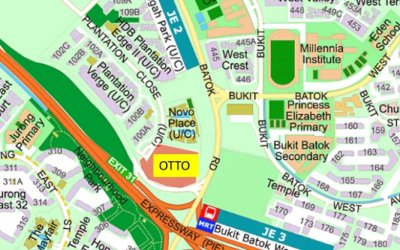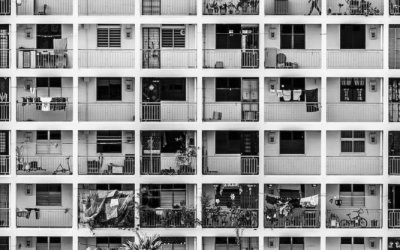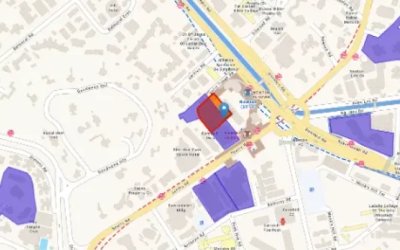正文
Small Claims Tribunals (SCT) are a way landlords and tenants can settle rental disputes sans hefty legal fees. Rental disputes, although not frequent, can sometimes happen between a landlord and tenant. These rental spats could happen due to various disagreements over the terms of the tenancy agreement, or things that weren』t covered by it.
Here are some typical rental disputes that the SCT can help resolve:
Landlord seeking damages to amenities and appliances, as well as to the property itself
Tenant asking the landlord to fix appliances or part of the property
Early termination of the tenancy agreement by landlord or tenant
Forfeiture of tenant’s security deposit at the end of the lease
Eviction of tenant
In this guide, we』ll walk you through the procedure for filing a claim with the SCT, the filing fees, and key things to take note of.
Small Claims Tribunals: an Overview
What is it?
The SCT's objective is to resolve minor claims between two parties quickly at an affordable cost.
How to file?
You can submit a claim online through the Community Justice and Tribunals System (CJTS).
How much does it cost?
You』ll only need to pay a fee of $10 to $20 to file a claim amounting to $10,000. For claims amounting to $20,000, the filing fee can reach up to $200.
What is the Small Claims Tribunals?
The SCT form part of the State Courts of Singapore. Established in February 1985, its objective is to resolve minor claims between two parties quickly at an affordable cost. This includes rental disputes between tenants and landlords.
However, before seeking the assistance of the SCT, you should first try to settle the rental dispute amicably with the other party. As a tenant or landlord, you can also request for the property agent(s) involved in the rental deal (if applicable) to help with the settling of the dispute.
Key Rules to Note Before Filing a Claim at the Small Claims Tribunals
Before you lodge a claim at the SCT, do keep the following rules in mind:
You and the respondent must have entered into a valid tenancy agreement
The tenancy agreement signed must be for a residential space only, and not for commercial purposes
The tenancy period must not exceed 2 years
Both you and the respondent must not be bankrupt or insolvent. You may check for this via the Ministry of Law’s Insolvency Office
What Kind of Damages Can Landlords Claim Through the Small Claims Tribunals?
As a landlord, you won』t be able to claim for damages caused by wear and tear.
Let’s say there are some scratches on the main door due to wear and tear. You won』t be able to ask your tenant to provide compensation to replace it, especially if the tenancy agreement has the Fair Wear and Tear clause.
Under this clause, it’s acceptable that the items in the property are not in the same condition as at the start of the tenancy period.
However, if the damages are caused by reckless acts and you and your tenant cannot reach an agreement to cover the damages, you can file a claim through the SCT.
It’s recommended that you take photos of the property, including furniture and fixtures, at relevant points of the tenancy period. Should a dispute arise, these pictures can be used as evidence to prove your case at the SCT.
Expanded Jurisdiction for the Small Claims Tribunals

Claim limit: The SCT can tackle claims of up to $20,000, and can also go up to $30,000 if both parties consent in writing.
Limitation period: The duration to make a claim is 2 years. This gives you and the other party more time to settle your disputes amicably and file the claim if needed.
Unfair Practice Hire-Purchase Claims: Claims under a hire-purchase agreement (payment through instalments) can be heard at the SCT.
Powers to Direct Parties to Attend Mediation: The registrar or tribunal can order parties to attend mandatory mediation at the Community Mediation Centre, or before any person.
Powers of the District Court to Send SCT Cases for Rehearing: A district court can send a case back to the tribunal for reconsideration, or order a rehearing by a different tribunal under certain circumstances.
Additional Reliefs: The SCT may order a tenant who has not paid rent, apart from the outstanding rent, to vacate the property.
Types of Disputes You Can File under the Small Claims Tribunals as a Tenant or a Landlord
Below listed are the disputes that are commonly found between a tenant and a landlord. For the full list, you may find them here.
Purchase of goods
Provision of services
Damage to property
Disputes over the tenancy lease of residential property not exceeding 2 years
If you are unsure if your claim is within the jurisdiction of the Tribunals, you can take a pre-filling assessment here.





















